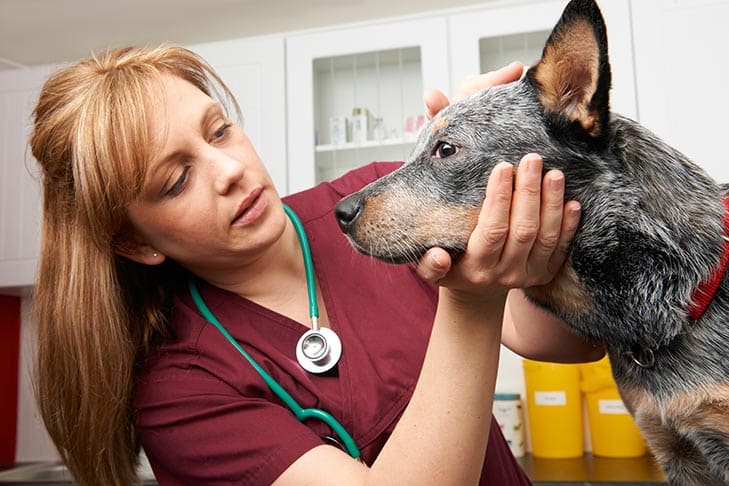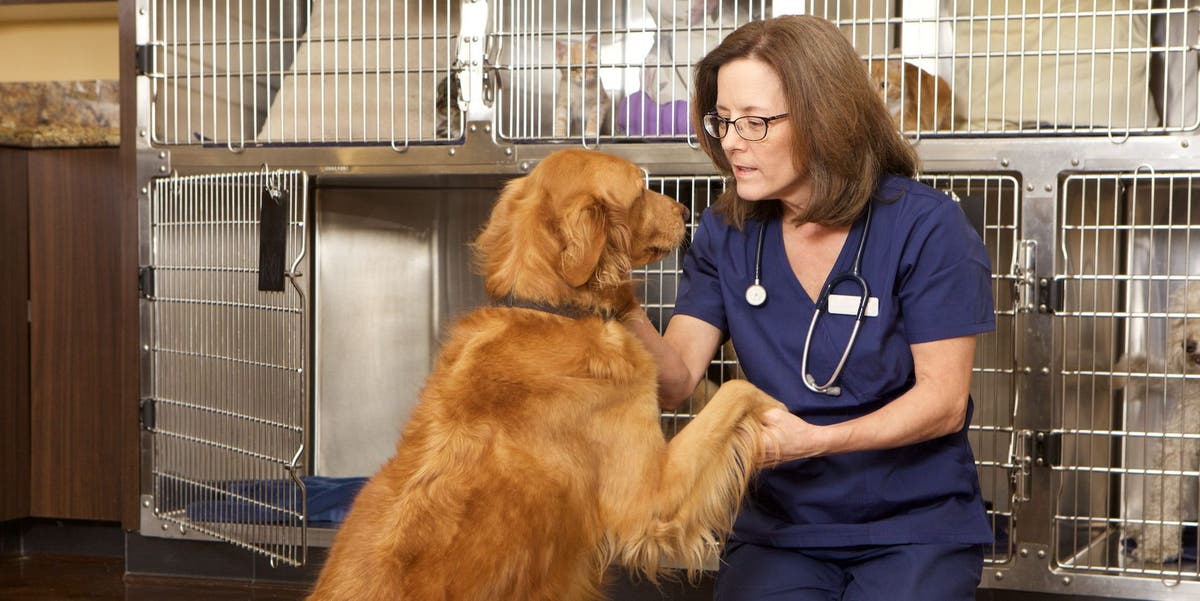The impact of a board certified veterinary behaviourist in animal care
Wiki Article
Understanding the Function of a Veterinary Behaviourist in Pet Dog Training and Health
The role of a veterinary behaviourist is essential in dealing with the complex partnership between family pets and their proprietors. They combine vet medicine with understandings from pet behavior science to take on problems like aggression and stress and anxiety. Unlike standard trainers, their approach concentrates on the underlying causes of these actions. This nuanced perspective questions regarding the efficiency of conventional training approaches and how a much deeper understanding can change pet well-being. What methods do they employ to achieve these results?What Is a Veterinary Behaviourist?
A vet behaviourist is a specific specialist who focuses on understanding and addressing the behavioral concerns of animals, specifically pets. Their expertise combines vet medicine and pet behavior scientific research, enabling them to identify and treat a variety of behavioral troubles - canine behaviourist near me. These professionals usually hold sophisticated degrees, such as a Master's or PhD in pet habits, and are certified by appropriate companies, guaranteeing they possess a deep understanding of pet psychologyVeterinary behaviourists assess pets through comprehensive monitoring and evaluation, considering aspects such as genetics, atmosphere, and training history. They develop customized therapy plans, which might consist of desensitization techniques, favorable reinforcement strategies, and ecological changes. Collaboration with animal proprietors is crucial, as they supply advice and support throughout the training process. Inevitably, the goal of a vet behaviourist is to boost the wellness of the animal while fostering a harmonious connection between pets and their proprietors.
The Significance of Understanding Pet Actions
Comprehending animal actions is necessary for both pet dog owners and experts in the area of pet care, as it lays the structure for effective communication and training. Recognizing how pets perceive their setting and reply to stimuli enables caretakers to produce a much more harmonious living scenario. Insight right into behavior hints, such as body movement and articulations, promotes more powerful bonds between family pets and their owners. By valuing the natural impulses and requirements of various varieties, people can tailor their training approaches to suit these elements, promoting far better understanding and participation. Additionally, a solid understanding of behavioral scientific research help in identifying stressors and potential triggers, allowing for aggressive treatments. In general, comprehending animal actions not only boosts the well-being of pet dogs but likewise improves the experiences of those who look after them, ultimately resulting in much healthier, happier connections.Typical Behavioral Issues Resolved by Vet Behaviourists
Veterinary behaviourists frequently resolve common behavioral concerns in animals, including aggressiveness and anxiety feedbacks. They additionally concentrate on anxiousness and stress and anxiety monitoring, which can considerably impact a pet's health. Recognizing these problems is important for establishing efficient training and intervention methods.Aggressiveness and Worry Reactions
While several family pet owners may view aggression and concern actions as basic behavioral issues, these complex reactions frequently come from underlying anxiety or previous injury. Veterinary behaviourists play a necessary function in recognizing the root triggers of these actions, which can materialize in different forms, including growling, attacking, or too much anxiety of particular circumstances. Understanding these triggers is essential for creating effective training techniques customized to every pet dog's special conditions. Behaviourists employ methods such as desensitization and counter-conditioning to assist animals handle their worries and hostility. Additionally, they enlighten animal proprietors about ideal monitoring strategies, highlighting the significance of patience and uniformity. Addressing hostility and anxiety actions not only enhances the animal's lifestyle yet also reinforces the bond in between pet and owner.Anxiety and Tension Management
Anxiety and tension prevail issues that many pets encounter, often arising from adjustments in their atmosphere, lack of socialization, or previous negative experiences. Veterinary behaviourists play an important role in identifying the underlying sources of these issues. They utilize different techniques, consisting of behavior alteration, desensitization, and counter-conditioning, to help family pets handle stress and anxiety. On top of that, they may advise environmental modifications, such as creating secure rooms or supplying enrichment activities that advertise relaxation. Collaboration with animal proprietors is essential, as behaviourists assist them in recognizing their pet dog's signals and implementing effective coping strategies. By addressing anxiety and anxiety, vet behaviourists contribute substantially to enhancing the general wellness and high quality of life for pet dogs and their families.Exactly How Vet Behaviourists Differ From Standard Instructors
Vet behaviourists vary from standard fitness instructors mainly in their academic backgrounds and training. While standard fitness instructors frequently concentrate on obedience and standard commands, veterinary behaviourists stress understanding and attending to underlying behavior issues, including medical considerations right into their technique. This distinct focus enables them to supply a much more comprehensive therapy for pets with complicated behavioral challenges.Education and Training Differences
Understanding the difference in between veterinary behaviourists and standard fitness instructors is necessary for family pet proprietors seeking effective training services. Veterinary behaviourists possess sophisticated degrees in vet medication, frequently followed by specialized training in pet behaviour. This education furnishes them to attend to complicated behavioural problems that may stem from clinical problems or mental factors. In comparison, traditional trainers normally have accreditations from training programs that concentrate on obedience and basic commands without delving into the underlying psychological or medical elements. While both experts intend to enhance animal practices, veterinary behaviourists can detect and deal with behavioural issues holistically, incorporating clinical knowledge into training techniques. This crucial difference highlights the importance of selecting the right expert based on the pet's certain requirements.Concentrate On Behavioral Issues
Resolving behavioural concerns requires a nuanced method that distinguishes vet behaviourists from conventional instructors. While conventional trainers typically concentrate on obedience and basic commands, vet behaviourists explore much deeper into the underlying root causes of troublesome behaviours. They use an extensive understanding of animal psychology and behavior adjustment strategies, which are rooted in clinical research study. This knowledge allows them to recognize issues stemming from stress and anxiety, concern, or aggression, instead than simply addressing surface-level signs. In enhancement, vet behaviourists analyze the pet's general well-being, considering environmental factors and the animal's background. By integrating clinical knowledge with try here behavioral techniques, they supply click resources tailored solutions that promote long-term behavioral change, ensuring both the pet dog's and proprietor's lifestyle are significantly boosted.Clinical Considerations Consisted Of
While standard instructors might forget underlying clinical issues, vet behaviourists focus on an extensive assessment of an animal's health and wellness as a fundamental action in addressing behavioral troubles. This approach permits them to recognize potential medical problems that might add to undesirable practices, such as anxiety, pain, or neurological conditions. By incorporating clinical evaluations into their method, vet behaviourists can team up with veterinarians to assure an alternative understanding of the family pet's wellness. Additionally, they can advise appropriate therapies or changes to training strategies based upon medical findings. This substantial point of view identifies veterinary behaviourists from typical trainers, as they resolve both behavioural and health-related factors, inevitably resulting in more reliable and lasting results for pet dogs and their owners.
The Refine of Collaborating With a Vet Behaviourist
Working together with a veterinary behaviourist entails an organized strategy to dealing with a family pet's behavior issues. The process starts with an extensive evaluation, where the behaviourist gathers thorough info about the family pet's history, atmosphere, and particular actions that are troublesome. This typically includes sets of questions, interviews with the family pet owner, and sometimes observations of the pet in its atmosphere.Following the assessment, the vet behaviourist formulates a tailored intervention plan that might consist of behavioral adjustment techniques, training techniques, and, if necessary, recommendations for clinical analyses. board certified veterinary behaviourist. The strategy is made to be sensible and attainable, guaranteeing that it fits effortlessly into the family pet owner's way of living
Succeeding follow-up sessions are vital to keep an eye on progression, adjust methods, and provide her response assistance. This joint effort not only aims to customize unwanted actions but additionally to boost the general well-being of the animal, making sure an unified partnership in between the family pet and its proprietor.
Enhancing Your Family pet's High quality of Life With Behavioral Support
Enhancing a pet dog's lifestyle with behavioral assistance is essential for cultivating a healthy and balanced and meeting connection in between animals and their proprietors (canine behaviourist near me). Vet behaviourists play an essential function in recognizing and dealing with behavioral concerns that may impede an animal's wellness. Through tailored methods, they help ease anxiety, anxiety, and aggression, inevitably advertising a more balanced and pleased pet dogBehavioral support includes numerous techniques, consisting of positive support, ecological enrichment, and socializing. By executing these methods, proprietors can produce a caring environment that encourages positive behaviors. This not only enhances the family pet's psychological wellness but also enhances the bond in between animal and owner.
Furthermore, normal consultations with a veterinary behaviourist warranty that any type of emerging behavioral issues are immediately attended to, stopping rise. On the whole, purchasing behavioral support is a proactive approach that significantly enhances an animal's life, resulting in enhanced physical and mental health results.
Often Asked Concerns
What Certifications Do Veterinary Behaviourists Possess?
Vet behaviourists commonly hold a veterinary degree, followed by specialized training in animal habits. Lots of likewise possess certifications from acknowledged organizations, demonstrating their proficiency in dealing with pet behavior issues and advertising general animal well-being.Can Vet Behaviourists Prescribe Medication for Animals?


Veterinary behaviourists, possessing vet degrees and specialized training, can undoubtedly suggest medicine for pets. This ability enables them to address underlying behavioral problems properly, frequently incorporating pharmacological treatment with behavioral alteration strategies for best end results.
The Length Of Time Does Behavior Modification Commonly Take?
Behavioral therapy duration differs substantially, typically ranging from a few weeks to a number of months. Aspects influencing this timeline consist of the pet's particular problems, uniformity of training, and the proprietor's interaction in the process.Are Remote Examinations Readily Available With Vet Behaviourists?

How Much Does a Veterinary Behaviourist Assessment Cost?
The price of a veterinary behaviourist consultation commonly ranges from $100 to $300, relying on elements such as location, experience, and session size. Extra charges might make an application for follow-up assessments or specialized solutions.Report this wiki page